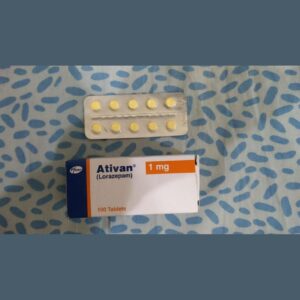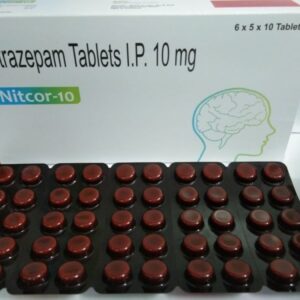Anxiety
Anxiety is a feeling of tension, worried thoughts, and physical symptoms such as sweating, trembling, voice changes, or increased blood pressure [5]. People with anxiety disorders often have recurring intrusive thoughts or concerns, may avoid certain situations out of worry, and may have physical symptoms such as sweating, trembling, dizziness, or a rapid heartbeat [8].
There are several medications used to treat anxiety disorders. The four major classes of drugs for anxiety disorders are selective serotonin reuptake inhibitors (SSRIs), benzodiazepines, buspirone, and sedatives or benzodiazepines [2]. SSRIs, such as Prozac, Zoloft, Paxil, Lexapro, and Celexa, are commonly prescribed for anxiety and have been used to treat generalized anxiety disorder (GAD), obsessive-compulsive disorder (OCD), panic disorder, social anxiety disorder, and post-traumatic stress disorder [1]. Benzodiazepines, such as alprazolam, help treat many kinds of anxiety disorders, including panic disorder, generalized anxiety disorder, and social anxiety disorder [3]. Buspirone is an anti-anxiety medication that may be prescribed and is used for short-term relief of anxiety symptoms, not intended to be used long-term [4].
It is important to note that while medication can be helpful in treating anxiety, relaxation techniques such as visualization techniques, meditation, and yoga, and healthy eating habits can also be linked to reducing anxiety symptoms [6]. Additionally, avoiding alcohol and recreational drugs can also help alleviate symptoms.
Showing 1–9 of 15 results









